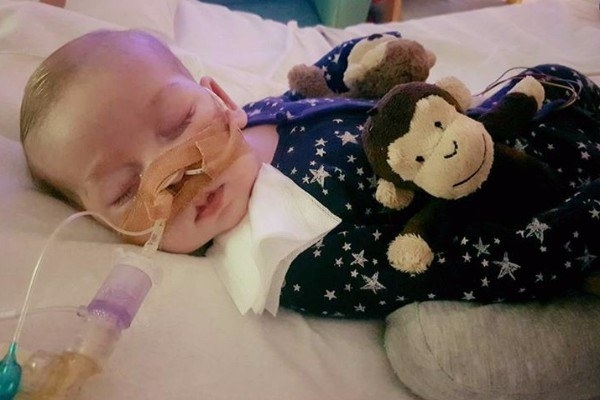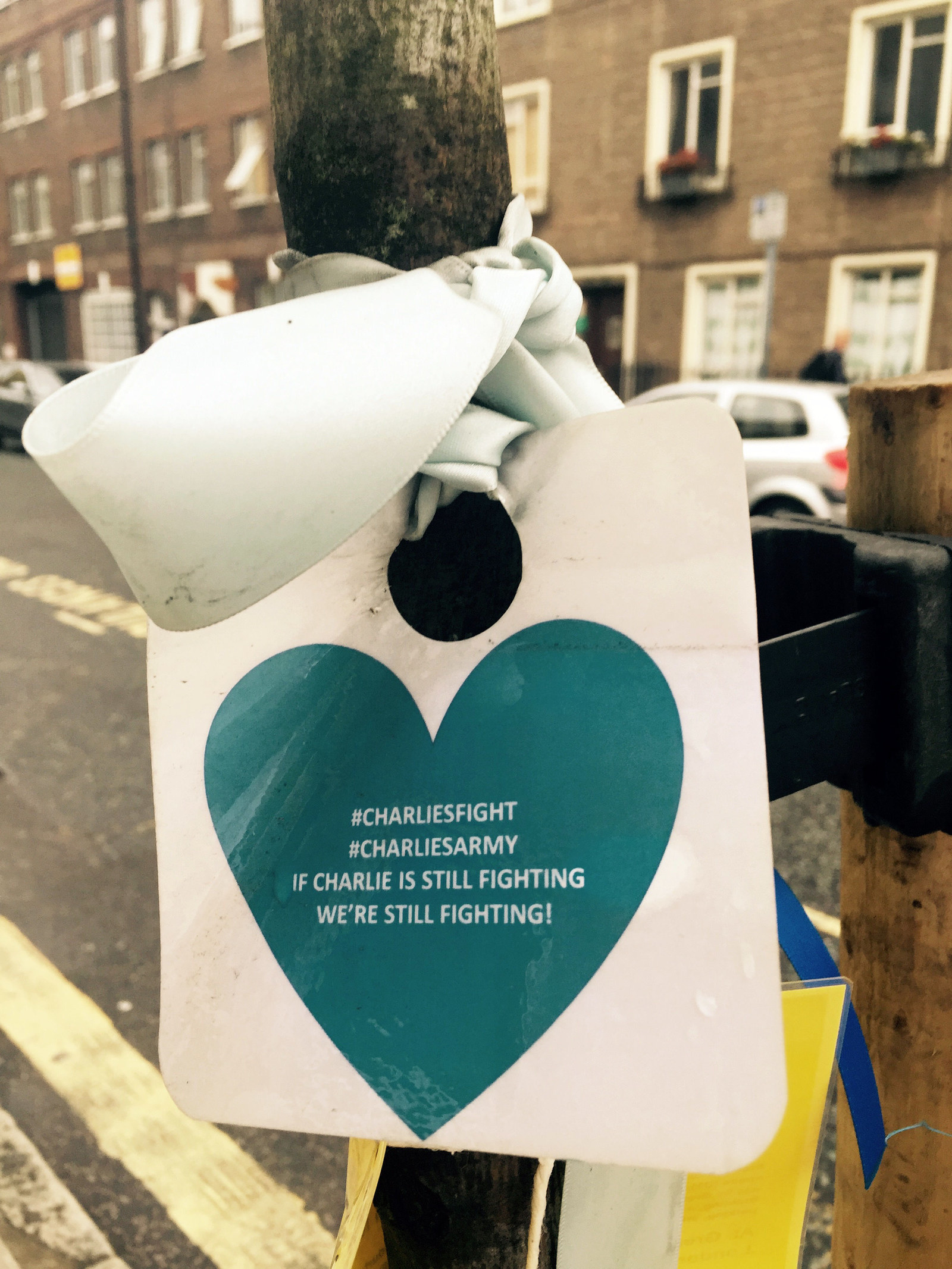
Donald Trump has offered to help a terminally ill baby boy at the centre of a legal battle over whether he should receive experimental treatment for a rare genetic condition or have his life support turned off.
Charlie Gard was born on 4 August last year with mitochondrial depletion syndrome, an extremely rare genetic condition that causes progressive muscle weakness and brain damage.
Doctors said he cannot see, hear, move, cry, or swallow, and he has been in hospital since he was 8 weeks old.
His parents Chris Gard and Connie Yates had been expecting their 10-month-old's life support to be turned off on Friday, but Great Ormond Street Hospital said it will continue Charlie's care to allow family to spend more time with him.
Pope Francis has called for the parents of the baby boy to be allowed to treat their child until the end. And on Monday afternoon Trump showed his support on Twitter: "If we can help little Charlie Gard, as per our friends in the UK and the Pope, we would be delighted to do so," the US president said.
If we can help little #CharlieGard, as per our friends in the U.K. and the Pope, we would be delighted to do so.
On Wednesday, responding to a question in the House of Commons, prime minister Theresa May said she was "confident" in doctors care for the child. May continued that GOSH "have and always will consider any offers or new information that has come forward with consideration of the well-being of a desperately ill child".
His parents raised more than the £1.2 million they needed for Charlie to undergo experimental treatment in the US, but a series of judges agreed with specialist doctors' assessments that Charlie had no chance of survival, and should be allowed to die with dignity rather than receive further treatment that could cause him "significant harm".

In April the High Court said doctors should stop providing life-support treatment, and the Court of Appeal dismissed Charlie's parents' appeal the following month. In June the couple lost their case in the Supreme Court, and this week the European Court of Human Rights said it could not intervene.

Gard and Yates, from Bedfont in west London, said they had been told Charlie would die in hospital, and not at home or in a hospice as they had wanted.
"We've promised our little boy every single day that we would take him home, because that is a promise we thought we could keep," Yates said last week in a message they posted on a YouTube channel set up to highlight Charlie's case, adding that they had "literally begged" the hospital to be able to take their son home.

“We want to give him a bath at home, we want to sit on the sofa with him, we want to sleep in a bed with him, we want to put him in a cot that he’s never slept in. But we are now being denied that," said Charlie's father.
Gard said their son was "still fighting", "but we're not allowed to fight for him anymore."
A spokesperson for Great Ormond Street Hospital said: "As with all of our patients, we are not able to and nor will we discuss these specific details of care.
"This is a very distressing situation for Charlie's parents and all the staff involved and our focus remains with them."


